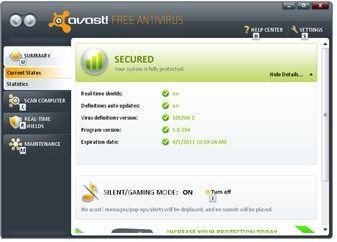Hoax and Virus Alerts - The Danger of Scareware and Rogue Software
Rogue Antivirus Software and Scareware - An Introduction
One of the most unfortunate facts about the Internet is that it is full of dangerous spyware and viruses. If this malware gets onto your computer, then it could cause a wide range of problems. Malware can hijack a computer for use in a botnet, steal vital information or generally damage your system.
Unfortunately, as the mousetraps get better the mice just get smarter. Scammers and hackers actually make use of this fear of malware to introduce their own malware onto your system in the form of a fake virus alert. False hoax and virus alerts are major threat. These fake antivirus programs will undermine your system’s security and try to defraud you. It has grown enough to even receive it’s own category under Microsoft’s classifications. These nasty rogue scanners are now recognized as “scareware.”
There are a few different types of programs in this category of rogue programs, hoax and virus alerts, which will be covered below.
Paths for Scareware Infection
Let’s get the most obvious hoax virus alerts out of the way.
Banner ads are the worst offenders for the general Internet browser. These are those big things on the sides and tops of webpages with a large red x warning that “your computer may be at risk.” Well, your computer may be at risk, but clicking on that ad won’t do a single thing to actually make it any safer. Hopefully it won’t shock you that clicking on that ad will lead to some bad consequences.
Another unfortunate category hits searchers trying to find a good antivirus program (for the record, we have a lot of reviews for free antivirus programs). It’s pretty easy to make a somewhat respectable website and publish it. Therefore, some fake antivirus programs just exist as a website promising antivirus protection. These websites will convince you to just download their program through your own volition.
The worst may be a recent batch of malware that works through seemingly normal banner advertisements. Unfortunately, advertisements can sometimes be infected. Scripts in banner ads can be made to take advantage of existing exploits. This means that you may become unknowingly infected on a trusted website without engaging in any of the traditionally risky behaviors. If you are receiving hoax and fake virus alerts or other scareware notices without noticing anything abnormal in your past browsing, then this is the likely culprit.
Types of Scareware
All scareware follows one very simple path. It tries to frighten you into thinking that your computer is infected with a fake virus alert. These will usually look fairly authentic. The real trick is that it will usually expect something extra out of you.
The most benign ones just want your money. Several of these pieces of scareware just give you hoax virus alerts and then explain that they can remove this “infection” if you upgrade to the advanced version of the program. Of course this “upgrade” will just be an empty update that certainly wasn’t worth the money. Note that there are many genuine antivirus programs available for free (we have a number of reviews on free antivirus software, if you’re looking), so trying to milk you for money should be a pretty big warning.
The other one is a bit worse. The second category wants to use its hoax virus alerts to try and infect your system with more nasty varieties of spyware. As I mentioned before, you can either get this by being tricked into downloading a “free” version or by any other exploit that they’ve worked up. Once it’s on your machine, it will harass you with authentic looking messages about infections on your computer and demand that you update or upgrade. In this case, they’re trying to get you to voluntarily download more spyware and give up more information.
Hoax and Fake Virus Alerts - Removal
Removing this scareware can be easy or hard. Unfortunately it will depend entirely on just what program you received. Hopefully you have something that’s less destructive. In this case, just using malwarebytes might be enough. You could also use something like AVG Free, Avast or Avira. It’s possible that some of the more aggressive forms of fake antivirus programs will disable existing scanners and stop you from downloading real antivirus programs.
In this case, then you will need to either download the antivirus programs onto a clean computer and move it onto a flash drive or CD. You also might be able to use a free online scanner to remove the antivirus. Unfortunately, that’s about all I can say without referring to a specific virus. If you need more specific help, then you should be able to search our site for the specific name and find a more in-depth guide for that particular infection.
Additional Reading
Antivirus 2010 Pro - An Example of a Rogue Antivirus Program
